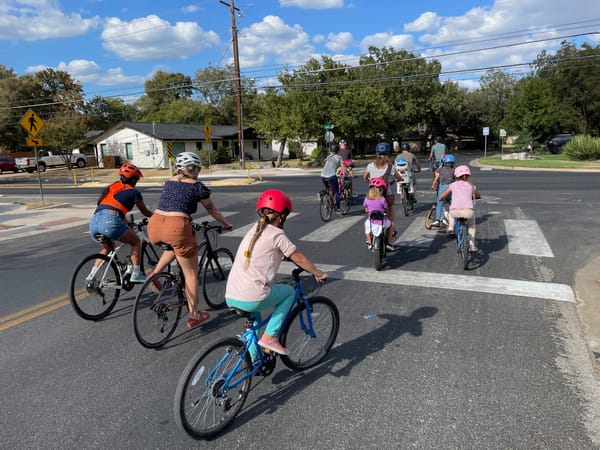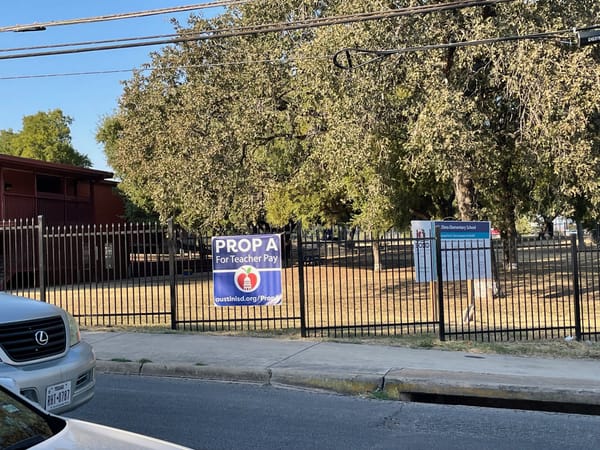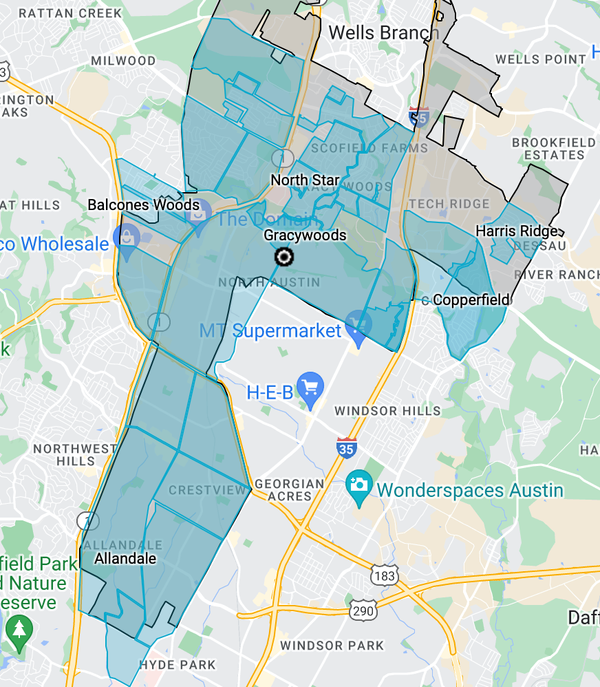The battle for the police union
Two challengers take on APA chief Thomas Villareal.
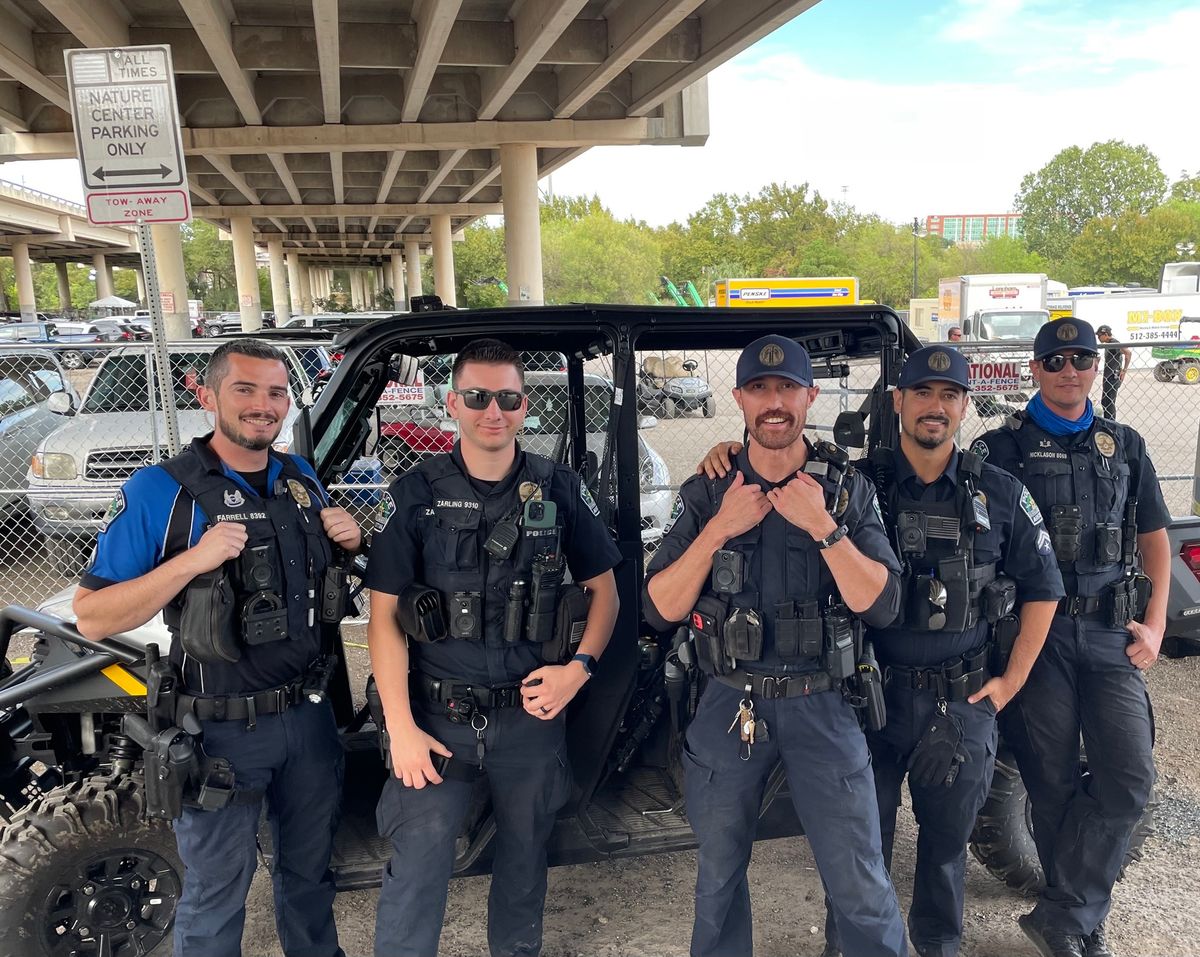
On Wednesday, the Austin Police Department's 1,460 officers will begin voting to elect the president of their union, the Austin Police Association. The cops have a week to cast their online ballots.
Incumbent President Thomas Villareal, who has helmed the union since the retirement of longtime former president Ken Casaday in August of last year, is running again.
In a previous era, the police association was considered one of the city's most influential political players. Most City Council candidates sought its endorsement and it was exceedingly rare for a candidate or elected official to publicly criticize it. Even Greg Casar, who later pushed for major cuts to the police budget in 2020, accepted a $350 contribution from the union when running for reelection in 2016.
Things started to change in 2017, when City Council unanimously rejected a contract supported by the union and city staff (then led by Interim City Manager Elaine Hart), citing concerns about both the costs of the negotiated pay raises and the need for stronger oversight. The police worked without a contract for 10 months before the union and Council finally agreed to a deal that strengthened the role of the Office of Police Oversight, although a grievance later brought by the APA largely rendered the OPO powerless again.
Obviously, the big break came in 2020, in the wake of George Floyd's murder. All of a sudden, the traditional deference City Council paid to the police department evaporated. Not only did Council seek to make big cuts to the police budget, but every member of Council, including many who had been supported by the APA in the past, signed a "No Cash from Cops" pledge to refuse contributions and endorsements from police unions.
The union president during those years, Casaday, nicknamed "Box," was known to be friendly and willing to talk to nearly anybody, including fierce adversaries, but was also prone to bombastic public statements denouncing elected officials and activists. His regular appearances on local conservative talk radio and Fox News cemented his public image as a reactionary, even if in private he described himself as a moderate Democrat (indeed, he is a longtime dues-paying member of the Circle C Dems).
Unsurprisingly, the police association embraced the backlash to the "defund the police" narrative and was welcomed with open arms at the Lege, which in 2021 passed a law forcing Austin to fully reinstate the police budget.
However, the union's efforts to reestablish itself as a force in local politics have been far less successful. Two years ago a proposition backed by the union that would have required the city to dramatically increase police hiring (at a tremendous cost) was defeated 2 to 1. More recently, in an effort to sabotage a referendum to increase police oversight (Prop A), the union poured nearly $300k into getting a competing measure on the ballot (Prop B) with the exact same name (but with none of the actual oversight). The ruse failed miserably; voters approved the actual oversight proposition 4 to 1.
The big question for the union now is whether it is going to bother trying to negotiate a new contract with the city. President Thomas Villareal has signaled that he has no intention to do so now that the Austin Police Oversight Act (Prop A) requires the city to insist on certain oversight provisions in a union contract. The city significantly undercut any leverage it had to get the cops back to the table by granting them pay raises anyway shortly after rejecting the previous contract proposal.
Officers are of course also struggling with a steep drop in staffing because retirements continue to significantly outpace new recruits.
Bino Cadenas
The son of Mexican immigrants, Cadenas had a blue collar upbringing in East Austin, where he still has family and is a familiar face at local businesses, such as Joe's Bakery, where we met for lunch a few weeks ago.
Congratulations @UTChiefStephens, proud to see you lead @UTAustinPolice!
— Bino Cadenas (@Officer_Bino) July 5, 2023
Hook’Em 🐂🧡🤘#ATX #UTLonghorns #HookEm pic.twitter.com/wXiTUktwj2
His first job after graduating from Texas State in 2010 was a car dealership, where he was making good enough money that his boss at the time was baffled by his decision to later become a cop, he recalls.
Since March Cadenas has been a detective working in human trafficking. Before that he spent three years working in APD's community outreach division and six years on patrol, including as a patrol supervisor. He's also currently chair of Austin Cops for Charities; his Twitter is filled with references to community engagement and volunteerism. He coaches soccer and t-ball and is on the board of the Guadalupe Neighborhood Development Corporation, an affordable housing provider whose founder, Mark Rogers, he has known since childhood.
Cadenas also ran unsuccessfully for Texas House District 51 last year, finishing in a distant 5th place in the Democratic primary with only 4.7% of the vote (Lulu Flores easily won the Dem primary and general election).
He believes the police association could use more of the upbeat, community-focused brand that he has been immersed in, both to strengthen its relationship with the public and to improve morale among officers, which he says is dangerously low.
"We have the barest bones of community outreach that we’ve ever had, in times that we need it the most," he said of the union.
Among other things, he chides current leadership for not engaging more productively with local media. In contrast to Casaday, Villareal has been very reluctant to engage with the press.
"I think a lot of times the president has been unwilling to share a narrative, so then a narrative gets created for you," said Cadenas.
A notable example is the way the APA responded to the Austin Police Oversight Act, the May ballot initiative that enshrined a number of police oversight measures into city ordinance. Six months before the May vote, a mysterious group, Voters for Oversight and Police Accountability, began circulating petitions for a competing ballot initiative, Prop B, which was also called the Austin Police Oversight Act but wouldn't actually provide any new oversight.
Many of us naturally suspected the APA's involvement, but the union wouldn't respond to questions about it. It wasn't until six weeks later, when VOPA was required to disclose its financial records, that it was revealed that the APA had provided almost all of its funding.
Cadenas said the union badly mishandled the situation.
"The whole narrative, the media, it hurt us tremendously in the community," he said. "I talked to several officers who were upset at how the union was being portrayed but there was no [public] response from the union."
That's not to say that Cadenas is a fan of the (real) APOA, which he believes is an "overreach" and that it "defeats the purpose of us having a union."
While Cadenas says the police should be quick to admit mistakes, including in its dealings with everyday people, he doesn't fault cops for their response to the 2020 protests, for which 19 officers have been indicted and the city has now paid over $20 million in settlements to injured demonstrators. The police reacted to the unprecedented situation "as well as we could," and that cops shouldn't bear the blame for the mistakes made by APD leadership, including the department's use of expired "less lethal" rounds.
"I feel it’s unfair for those [indicted] officers because that could have easily been me," he said. "I would be upset at my leadership and my city for putting me in that situation with little to no direction."
Michael Bullock
Bullock, who grew up in North Austin, joined the police department six years ago after a number of years working in state politics, both as a legislative aide at the Capitol and as executive director of Texas Action, a libertarian/conservative group that supported efforts to cut state spending, including through criminal justice reform. When I ask about his politics, however, he said he is not firmly anchored on a particular point of the ideological spectrum, but evaluates policies individually.

He currently works patrol in Southwest Austin, and in the past he has also been responsible for media engagement as a public information officer. He also works as a realtor off-duty.
Bullock's critiques of the union's current and past leadership are similar to Cadenas's.
"I like Thomas personally," he said of Villareal recently. "I just have a fundamental disagreement about how we operate. I think we should be more vocal, I think we should be more engaged."
As for Casaday: "Ken was more visible. He loved talking to the media. But you have to talk to people in an effective manner. You can’t be bullies. All we need to do is tell the truth."
The community simply doesn't appreciate the work that police officers are doing everyday, he said. People don't understand the difficult, split-second decisions that often lead to controversial police shootings.
"The truth is a powerful thing and I think it’s all been very one sided and most people don’t understand our side of the story," he said.
For instance, Bullock claims that Austin's murder toll would be significantly higher if APD officers weren't so skilled at "keeping people alive" by quickly responding to shootings and stabbings.
"I've seen officers plug bullet wounds, apply tourniquets ... that's the kind of work we do all the time but nobody really knows about it," he said.
Like Cadenas, Bullock said that the APOA is fatally flawed and agrees that the union's efforts to block its passage harmed its credibility.
However, he added, "I would say that we’ve been attacked a lot. And you can’t expect somebody who’s being constantly attacked and beaten down to fight back. Could it have been done better? Probably."
He similarly said the officers responding to the protests "did an amazing job," and that he doesn't have confidence that cops will be fairly treated by District Attorney José Garza, who is a reviled by officers for his aggressive pursuit of police misconduct prosecutions.
Not only does Bullock believe the prosecutions of police officers are unfair, but he says they have made officers more hesitant to intervene in situations that might lead to use of force. That, combined with a police staffing shortage, threatens to undermine crime deterrence, he said.
"That causes problems because now all of a sudden officers are questioning, “should I do this, should I not?," he said.
On the bright side, he is very excited about the new police chief, Robin Henderson. Rank-and-file cops have much greater confidence in her than her two predecessors, Joe Chacon and Brian Manley, he said.
Thomas Villareal
Villareal joined the force 18 years ago after graduating from UT. He's been a member of the APA board for 15 years and has worked full-time for the union for six. He was vice president before being elevated to the top role last year when Casaday retired with a little more than a year left in his four-year term.
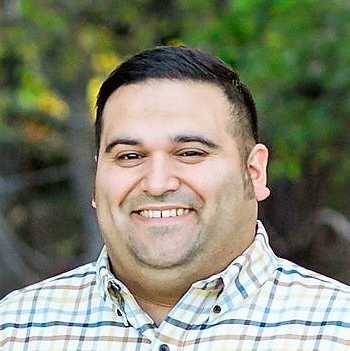
Villareal's pitch to the membership centers on experience.
"We're at a real turning point for the profession," he said. "It's vital now more than ever to have strong leaders with experience."
As for his opponents' critiques of his leadership: "I've worked full time in that building for six years. I think it's easy for people who aren't doing the job to see things a certain way."
He has "tremendous respect" for Cadenas and Bullock, but wishes "they had taken the opportunity to be involved on a higher level" with the union in the past.
"Bino's been very involved on the nonprofit side, but it's apples and oranges," he said. "Doing charitable work and running a police association are not the same thing."
When I asked him about the union's inelegant efforts to undermine Prop A, Villareal says he is not "inclined" to discuss political strategy in public, but that the decision to fund the Prop B campaign was made unanimously by the board.
"I still stand behind the overall strategy," he said.
He also takes credit for working with the statewide police federation to get a law passed at the legislature this spring that would prohibit the city of Austin from withdrawing from Chapter 143, the the civil service code that many cities in Texas have opted into in the past. It is what governs labor relations when police are working without a contract, and it is what city attorneys point to in arguing that certain police records relating to investigations of police misconduct must remain confidential, to the chagrin of police reform activists.
"It was a tremendous win for our membership," said Villareal.


